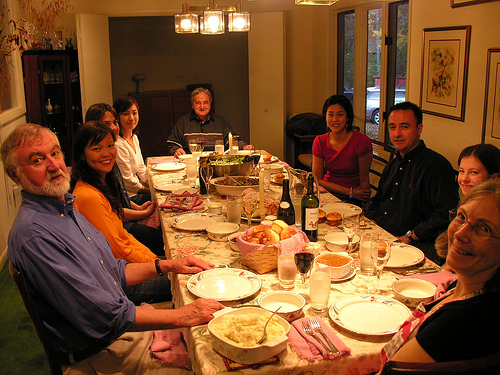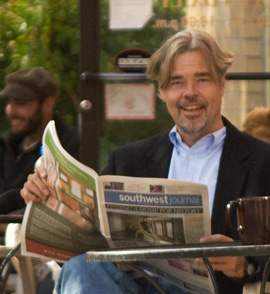This time of the year offers a splendid example of how the commons is weaved into our collective imagination as a nation: Thanksgiving. I consider it one of America’s very best inventions—a harvest feast celebrating the bounty of our land and indigenous food traditions, which evokes the rich communal culture of our Native Americans as well as the community-centered life of New England settlers.
Furthermore, the festive Thanksgiving holiday vividly illustrates the joys of commoning—a newly minted word describing how the commons is put into practice. Commoning, which happens all around us all the time, counters the widespread assumption that privatized actions are the key to American prosperity, security and happiness.
Think of the typical Thanksgiving morning in a typical American household. A team of cooks and hangers-on bustle in the kitchen: slicing, dicing, spicing, broasting, basting, tasting and talking. Every guest coming through the door contributes something more to the feast—their special cranberry or sweet potato dish, vegetables out of the garden, a jug of home-brewed beer, dinner rolls from their favorite bakery, chrysanthemums, or a bottle of wine saved for this special occasion. Oftentimes, at least in my experience, the neighbors are called to bring over a couple more chairs so every can sit at the table while the turkey is carved.
Even more important than the food is the conversation, covering everything from family updates and college football to community issues, personal aspirations and the season’s new movies.
This year the commons would be a timely subject to bring up over pumpkin pie. Or even in the blessing when we count all the things we are thankful about.









